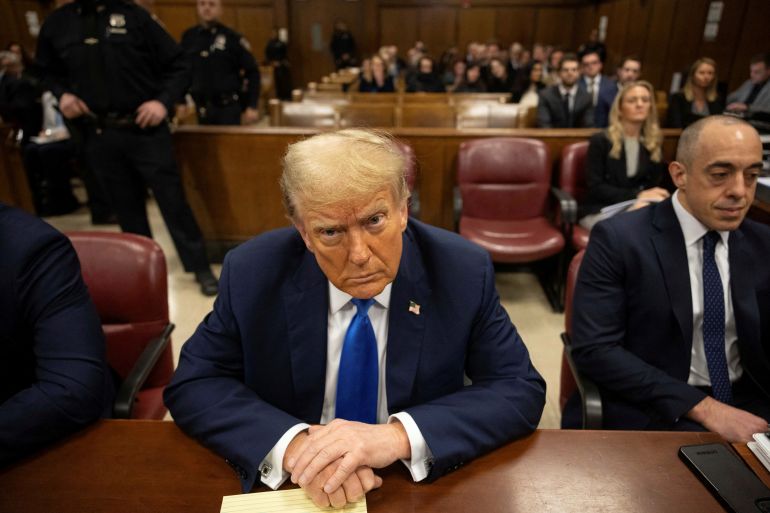In a historic criminal trial, opening arguments were delivered today in New York City against former US President Donald Trump. The trial marks the first time a former president faces criminal charges in the country’s history. Assistant District Attorney Matthew Colangelo presented the allegations against Trump, accusing him of falsifying business records to conceal payments made to adult film star Stormy Daniels, with whom he is alleged to have had a sexual relationship. The prosecution argues that the payments were intended to silence Daniels before the 2016 US presidential election, characterizing the case as a criminal conspiracy and cover-up.
Trump’s defense team, led by lawyer Todd Blanche, vehemently denied the state’s allegations, asserting the former president’s innocence and claiming that he did not commit any crimes. The opening arguments set the stage for what is expected to be a tense six-week trial, with potential wide-reaching consequences for the country.
Legal experts have noted that the central question in the case revolves around whether Trump’s alleged falsification of business records rises to the level of a felony crime under New York law. To be considered a felony, the falsification must have been committed with the intent to defraud and commit another crime. Prosecutors will need to convince the jury that the falsification was done with the intent to cover up or commit another crime, regardless of whether Trump was successful in carrying out that crime.
The trial also focuses on the credibility of former Trump lawyer Michael Cohen, who has claimed that Trump directed him to make the payment to Daniels. Trump’s defense team has sought to portray Cohen as a disgruntled former insider with a personal vendetta against the former president.
The outcome of the trial remains uncertain, and it is unclear what impact, if any, it will have on Trump’s re-election chances in November. Polls indicate a divided public opinion on the merits of the case, with some Republican voters stating they would not support Trump if he were convicted of a felony.
The opening statements presented by both the prosecution and defense aimed to shape the jury’s perception of Trump. The defense sought to portray him as a New Yorker fighting against an overreaching state, emphasizing his role as a man, husband, and father. The prosecution, on the other hand, aimed to convince the jury that Trump is someone who consistently disregards rules and should be held accountable for his actions.

